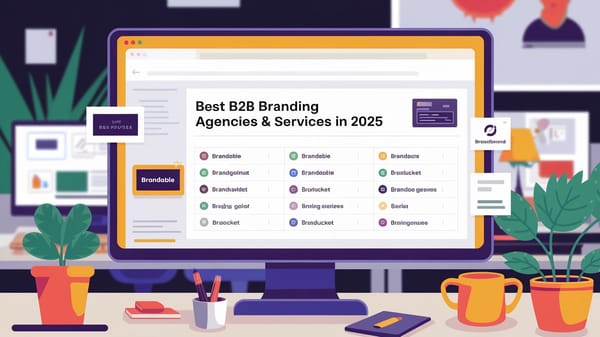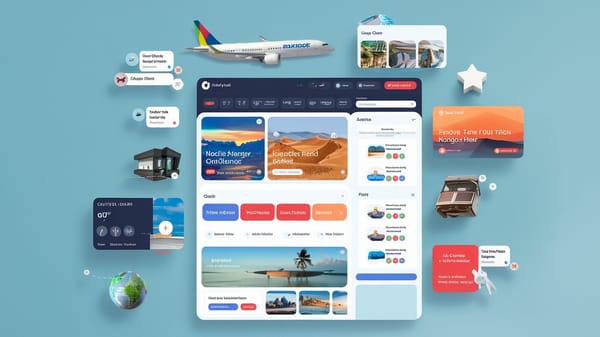What are Lifetime Deals and Why are They Important?

In the rapidly evolving digital landscape, businesses and consumers alike are constantly seeking cost-effective solutions to maximize value and efficiency. One such solution that has gained significant traction is the concept of Lifetime Deals (LTDs). A Lifetime Deal is a pricing strategy where customers pay a one-time fee to gain perpetual access to a product or service, typically software, without the burden of recurring subscription costs. This model contrasts with traditional subscription models that require ongoing payments, offering a unique opportunity for both businesses and consumers to benefit from long-term savings and stability.
The importance of Lifetime Deals extends beyond mere cost savings. For businesses, they offer a strategic advantage by providing a predictable cost structure, which aids in financial planning and budgeting. This predictability is crucial for startups and small businesses that need to manage their cash flow meticulously. Moreover, Lifetime Deals can serve as a powerful marketing tool, helping companies to quickly expand their customer base and generate buzz around their products. By offering LTDs, businesses can attract early adopters who are not only likely to provide valuable feedback but also become long-term brand advocates.
Lifetime Deals have become increasingly popular, particularly among startups, small businesses, and freelancers who operate on tight budgets. These deals provide access to essential tools and resources at a fraction of the regular cost, enabling businesses to allocate their resources more effectively. Platforms like Oncely.com have emerged as key players in this space, offering a wide range of software deals that cater to various business needs.
Now you can visit Oncely.com to find more Top Trending AI Tools. Oncely partners with software developers and companies to present exclusive deals on their products. These deals often provide substantial discounts compared to regular pricing models, making it an attractive platform for individuals and businesses looking to access quality tools and services at more affordable rates.
Some common types of products and services featured on Oncely include a wide range of software tools across various categories, including productivity, marketing, design, development, project management, and more. Examples include project management platforms, SEO tools, social media schedulers, email marketing software, website builders, and graphic design tools.
One unique aspect of Oncely is its “Lifetime Access” feature, where customers can purchase a product once and gain ongoing access to it without any recurring fees. However, it’s important to note that the availability of lifetime access may vary depending on the specific deal and terms offered by the software provider.
Oncely also provides a 60-day money-back guarantee on most purchases, allowing customers to try out the products and services risk-free.
Oncely are hunting for the most fantastic AI & Software lifetime deals like the ones below or their alternatives:

Table of Contents
Understanding Lifetime Deals
- Definition and Characteristics of Lifetime Deals
- Benefits of Lifetime Deals
- Drawbacks of Lifetime Deals
- Strategic Considerations for Businesses
- Evaluating and Choosing the Right Lifetime Deal
Benefits and Importance of Lifetime Deals
- Building a Loyal Customer Base
- Cost-Effectiveness and Financial Stability
- Enhanced Customer Lifetime Value (CLV)
- Competitive Advantage and Market Penetration
- Risk Mitigation and Strategic Flexibility
- Scalability and Growth Opportunities
- Conclusion
Considerations and Risks of Lifetime Deals
- Financial Implications and Revenue Ceiling
- Product Support and Update Limitations
- Market and Competitive Risks
- Strategic Considerations and Risk Mitigation
- Legal and Contractual Considerations
Definition and Characteristics of Lifetime Deals
Lifetime Deals (LTDs) are a pricing strategy where customers pay a one-time fee to gain permanent access to a product or service, typically software or SaaS products. This model contrasts with traditional subscription models that require ongoing monthly or annual payments. The primary appeal of LTDs lies in their potential for significant long-term savings, especially for users who plan to utilize the software over an extended period (The Bootstrapped Founder).
LTDs often come with several attractive features. They provide continuous access to the product for as long as it remains available, eliminating concerns about account cancellations or losing access due to missed payments. Additionally, LTDs frequently include added value and additional features, offering a comprehensive package that may not be available in standard subscription plans (SaaS Deals Blog).
Benefits of Lifetime Deals
- Cost Savings: One of the most significant benefits of LTDs is cost savings. By making a single upfront payment, users can avoid the ongoing expenses associated with monthly or annual subscriptions. This can be particularly advantageous for individuals or businesses with limited budgets, allowing them to access premium products or services at a fraction of the cost (Software Deals Blog).
- Predictable Budgeting: LTDs offer financial predictability, which is crucial for businesses and individuals alike. With a one-time payment, users can plan their budgets more effectively without worrying about recurring costs or unexpected price hikes. This stability is particularly appealing in an ever-changing digital landscape where software tools can rapidly evolve or become obsolete (Buffer Apps).
- Early Adopter Benefits: For startups and small businesses, LTDs can be a game-changer. They provide access to essential tools without the burden of recurring subscription costs, allowing these businesses to allocate resources more efficiently. Moreover, LDs can support scalability, as the software continues to serve without additional costs, making long-term planning and budgeting more predictable (Early Bird).
Drawbacks of Lifetime Deals
- Revenue Ceiling for Providers: For businesses offering LTDs, there is a potential revenue ceiling. Since the payment is a lump sum, it can be equated to a certain number of months of subscription revenue. If this number is significantly below the Lifetime Value (LTV) of customers, the business may eventually stop being compensated for the value provided. This can become a long-term liability if not managed carefully (The Bootstrapped Founder).
- Limited Support and Updates: One potential drawback of LTDs is the limited support and updates that may accompany them. Since users are not paying for ongoing maintenance or updates, providers may prioritize support for their subscription-based customers. Response times and access to customer support may be slower or less comprehensive. Additionally, while some LTDs may include access to future updates, others may not, leaving users with outdated software or services lacking the latest enhancements (SaaS Deals Blog).
- Availability Limitations: LTDs are often offered for a limited time or in limited quantities. Once the deal is over, it may not be available again, or the price may increase significantly. This means that users need to act quickly if they come across a lifetime deal that interests them. Additionally, some LTDs may be exclusive to certain regions or customer segments, limiting accessibility for a broader audience (SaaS Deals Blog).
Strategic Considerations for Businesses
- Marketing Channel: For SaaS startups, LTDs can serve as a unique marketing channel rather than a revenue model. They can help acquire new customers quickly and cheaply, providing an opportunity to upsell these customers in the future. Offering an LTD can generate buzz, social proof, and traction for a product in a competitive market. Platforms like AppSumo, which have a massive audience of entrepreneurs and businesses, can be instrumental in promoting LDs (SaaS Mantra).
- Risk Mitigation: Businesses considering offering LTDs should employ risk mitigation strategies to manage potential negative impacts. This includes conducting thorough market research, setting appropriate pricing, and ensuring that the deal aligns with the company's long-term goals. By making informed choices and weighing the benefits against the drawbacks, businesses can leverage LTDs effectively without compromising their growth potential (The Bootstrapped Founder).
Evaluating and Choosing the Right Lifetime Deal
Navigating the world of LTDs can be overwhelming due to the plethora of options available. To make the right choice, users should evaluate their specific needs and goals, considering factors such as the product's relevance to their operations, the potential return on investment, and the long-term impact on their business. It is crucial to weigh the benefits and drawbacks of each deal, ensuring that the chosen LD aligns with their strategic objectives (Early Bird).
In summary, Lifetime Deals offer a compelling alternative to traditional subscription models, providing significant cost savings and financial predictability. However, they also come with potential drawbacks, such as limited support and a revenue ceiling for providers. By understanding these dynamics and strategically evaluating LDs, businesses and individuals can make informed decisions that align with their long-term goals.
Building a Loyal Customer Base
LTDs offer a unique opportunity for businesses to cultivate a loyal customer base. By providing a one-time payment option, companies can attract early adopters who are likely to become brand ambassadors. These customers often feel a sense of ownership and commitment to the product, which can lead to increased word-of-mouth marketing and long-term brand advocacy (SaaS Lucid). This strategy not only helps in building a community of dedicated users but also enhances customer retention, which is crucial for sustaining business growth.
Cost-Effectiveness and Financial Stability
One of the most significant advantages of lifetime deals is their cost-effectiveness. For consumers, these deals eliminate the burden of recurring subscription fees, providing access to products or services for a lifetime at a fraction of the cost (Highperformr). This financial predictability is particularly appealing to startups and small businesses that need to manage their budgets carefully. For businesses, offering lifetime deals can provide an immediate influx of cash, which is especially beneficial for nascent companies looking to stabilize their finances quickly (The Bootstrapped Founder).
Enhanced Customer Lifetime Value (CLV)
LTDs can significantly enhance the Customer Lifetime Value (CLV) by ensuring that customers remain engaged with the product over an extended period. This engagement is crucial as it increases the likelihood of additional purchases and upselling opportunities. By locking in customers with a lifetime deal, businesses can maximize the revenue generated from each customer, thereby improving overall profitability (ExactBuyer).
Competitive Advantage and Market Penetration
Offering lifetime deals can provide a competitive edge in the market. These deals often include early access to new features and exclusive benefits, which can attract customers looking for the latest innovations (Highperformr). This strategy not only helps in capturing a larger market share but also positions the company as a leader in its industry. By leveraging lifetime deals, businesses can quickly penetrate new markets and establish a strong presence, which is essential for long-term success.
Risk Mitigation and Strategic Flexibility
While LTDs come with certain risks, such as the potential for a revenue ceiling, they also offer strategic flexibility. Businesses can mitigate these risks by carefully planning the scope and limitations of the deal, ensuring that it aligns with their long-term goals (The Bootstrapped Founder). Additionally, lifetime deals can serve as a valuable marketing tool, allowing companies to test new products or features with a dedicated user base before a full-scale launch. This approach not only reduces the risk of product failure but also provides valuable insights into customer preferences and market trends.
Scalability and Growth Opportunities
LTDs can facilitate scalability by providing businesses with the resources needed to expand their operations. The upfront revenue generated from these deals can be reinvested into product development, marketing, and customer support, enabling companies to grow more rapidly (SaaS Lucid). Furthermore, lifetime deals often include stackable licenses, allowing businesses to accommodate more users or unlock additional features as they scale. This scalability is crucial for companies looking to expand their reach and increase their market share.
Conclusion
In summary, lifetime deals offer numerous benefits that can significantly impact a business's success. From building a loyal customer base and enhancing CLV to providing financial stability and competitive advantage, these deals are a strategic tool that can drive growth and profitability. However, businesses must carefully consider the potential risks and ensure that their LTDs align with their long-term objectives. By doing so, they can leverage the full potential of lifetime deals to achieve sustainable success in the competitive market landscape.
Financial Implications and Revenue Ceiling
LTDs offer a one-time payment model that can provide significant savings for customers, but they also present financial challenges for businesses. The primary financial risk is the revenue ceiling that LTDs impose. Unlike subscription models that generate recurring revenue, LTDs provide a single influx of cash. This can be beneficial for startups needing immediate capital, but it limits long-term revenue potential (The Bootstrapped Founder). Businesses must carefully calculate whether the upfront payment from LTDs will cover the costs of ongoing support, updates, and potential scaling of the product.
Moreover, the pricing of LTDs must be strategically set to ensure that the acquisition cost is lower than the customer lifetime value (CLV). If not, businesses risk financial instability (Pointe.ai). This requires a deep understanding of the market and customer behavior to avoid underpricing the deal, which could lead to long-term losses.
Product Support and Update Limitations
One of the significant risks associated with LTDs is the potential limitation on product support and updates. Customers purchasing LTDs expect ongoing support and updates without additional costs, which can strain a company's resources (SaaS Lucid). If a company fails to deliver continuous improvements or support, it risks damaging its reputation and customer satisfaction.
Furthermore, the sustainability of providing lifetime support is questionable, especially for small businesses or startups. The cost of maintaining and updating software can be substantial, and without recurring revenue, companies may struggle to keep up with technological advancements or customer demands (Pointe.ai). This can lead to outdated products that do not meet the evolving needs of users.
Market and Competitive Risks
LTDs can also pose market and competitive risks. While they can attract early adopters and create brand ambassadors, they may also saturate the market quickly, leaving little room for future growth through traditional sales channels (SaaS Lucid). This saturation can limit a company's ability to attract new customers at higher price points, as the perceived value of the product may decrease over time.
Additionally, competitors may respond by offering similar or better deals, leading to a price war that can erode profit margins. Companies must be prepared to differentiate their offerings and maintain a competitive edge beyond just pricing (The Soft Park).
Strategic Considerations and Risk Mitigation
To mitigate the risks associated with LTDs, businesses should employ strategic considerations. This includes conducting thorough market research to understand customer needs and setting realistic expectations for product support and updates (The Bootstrapped Founder). Companies should also consider implementing safeguards, such as limiting the number of LTDs sold or offering them only during specific promotional periods to control market saturation.
Another strategy is to use LTDs as a marketing tool to gather feedback and improve the product. Customers who invest in LTDs often feel a sense of ownership and are more likely to provide valuable insights that can guide product development (SaaS Lucid). This can help companies refine their offerings and enhance customer satisfaction.
Legal and Contractual Considerations
Legal and contractual considerations are crucial when offering LTDs. Companies must ensure that the terms and conditions of the deal are clear and transparent to avoid potential disputes. This includes specifying what is included in the deal, such as access to future updates, support levels, and any limitations on usage (Pointe.ai).
Additionally, businesses should consider the refund policy associated with LTDs. A flexible refund policy can enhance customer trust and satisfaction, but it also poses a financial risk if not managed properly. Platforms like AppSumo often offer 60-day no-questions-asked refunds, which can be a model for businesses to consider (The Soft Park).
In conclusion, while lifetime deals offer significant benefits, they also come with considerable risks that businesses must carefully navigate. By understanding the financial, market, and legal implications, companies can strategically leverage LTDs to enhance their market presence and customer base while mitigating potential downsides.
References
- https://www.dealfuel.com/blog/are-lifetime-deals-worth-the-hype/
- https://blog.exactbuyer.com/post/why-is-customer-lifetime-value-important-importance-understanding
- https://www.untaylored.com/post/the-customer-loyalty-business-model-explained-maximizing-retention-and-growth
- https://thesoftpark.com/what-are-lifetime-deals-and-why-are-they-important/
- https://medium.com/@riju40106/what-is-lifetime-deals-the-pros-and-cons-4e97a365f7c6
- https://thatjump.com/posts/should-you-buy-a-lifetime-saas-deal-from-a-startup
- https://pointe.ai/what-are-software-lifetime-offers/
- https://www.highperformr.ai/blog/what-is-a-lifetime-deal
- https://www.graygroupintl.com/blog/customer-lifetime-value
- https://pointe.ai/are-software-lifetime-offers-worth-it/
- https://thebootstrappedfounder.com/lifetime-deals-and-saas-businesses/
- https://bufferapps.com/blog/all-about-lifetime-software-deals/
- https://saaslucid.com/how-do-lifetime-deals-work/





